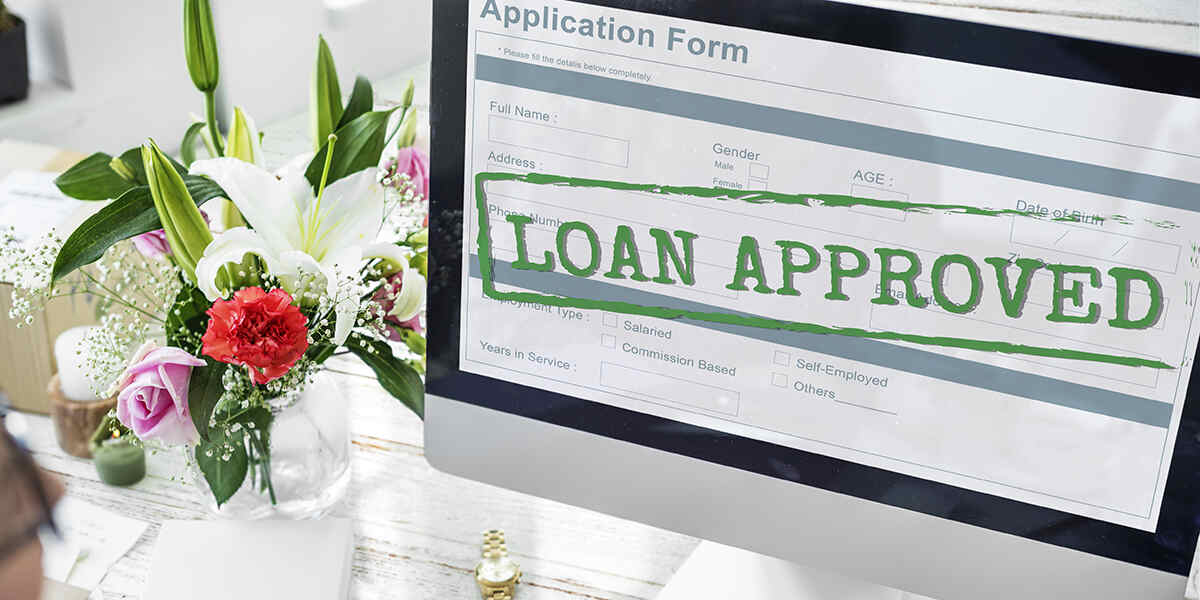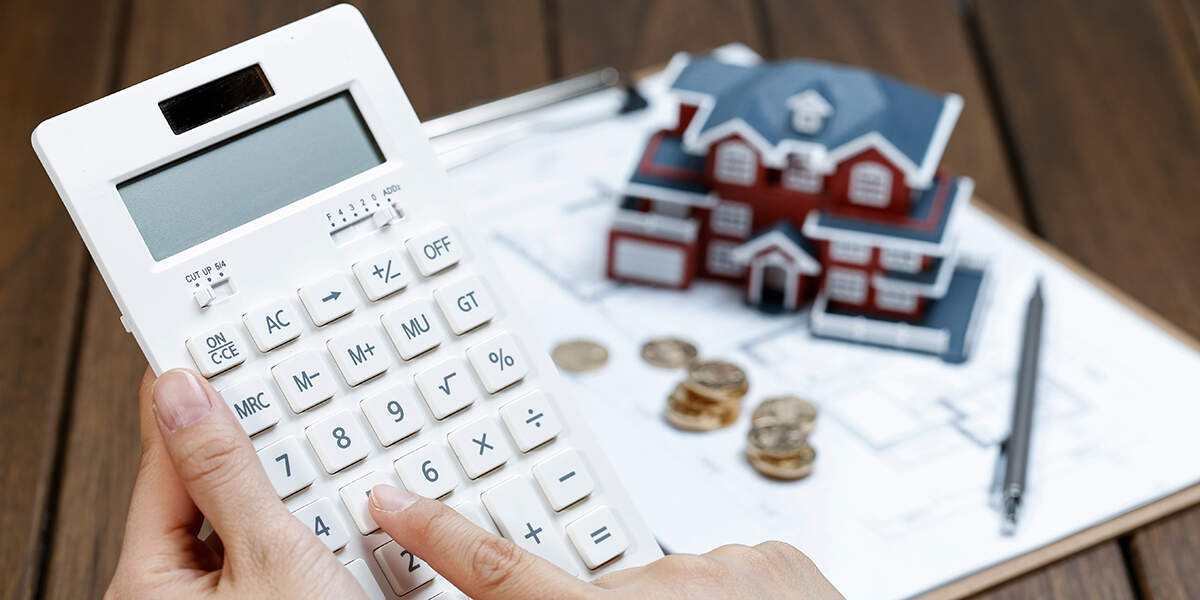Feeling overwhelmed by the mortgage process? Calculating payments and understanding different types of mortgages can be daunting. This guide is here to help. We’ll cover mortgage terms, payment costs, affordability, and more. After reading, you’ll feel confident about mortgages and be ready to make smart choices.
Understanding Mortgages
What is a Mortgage?
A mortgage is a loan to buy a home or property. The borrower pays back the loan and interest over 15 to 30 years. If payments aren’t made, the lender can take the property.
Key parts of a mortgage are loan amount, interest rate, monthly payment, property taxes, insurance, and PMI for lower down payments. Borrowers need good credit and income to qualify.
Monthly payment depends on loan amount, interest rate, and term. Calculators estimate payments and savings for extra payments or comparing types of mortgages.
Key Mortgage Terminology
Fixed-rate mortgages have a constant interest rate throughout the loan term. This provides stable monthly payments for borrowers.
Adjustable-rate mortgages (ARMs) have interest rates that can fluctuate over time. This fluctuation is based on market conditions, resulting in varying monthly payments.
Down payment is the initial payment made by the home buyer toward the purchase price of the property. It often influences the loan amount and interest rates.
PMI, or private mortgage insurance, is required for borrowers with a loan-to-value ratio over 80%. This insurance protects lenders in case of default.
APR, or annual percentage rate, includes the total cost of the mortgage loan. It encompasses interest rates, points, and other lender fees. This shows the true cost of borrowing.
Understanding these terms is important when assessing the affordability and financial implications of mortgaging real property.
Different Types of Mortgages
There are different types of mortgages for homebuyers. Two common ones are fixed-rate mortgages and adjustable-rate mortgages.
Fixed-rate mortgages have a steady interest rate for the entire loan term, making payments predictable. On the flip side, adjustable-rate mortgages (ARM) have rates that can change with the market, offering lower initial payments but the risk of higher rates in the future.
When choosing between these, consider factors like income, credit score, how long you plan to stay in the home, and comfort with rate fluctuations. Property taxes, insurance, and private mortgage insurance (PMI) should also be part of monthly budgeting for stability.
Understanding the loan terms is important. But don’t forget to evaluate your budget, savings, and financial goals to pick the best mortgage option for your needs.
Calculating Mortgage Costs
Using a Mortgage Calculator
A mortgage calculator is a helpful tool for estimating monthly payments.
Users input details like loan amount, interest rate, term, property tax, and insurance costs.
This gives an accurate estimate for budget planning.
The calculator also helps users explore extra payment scenarios and potential savings.
It’s useful for Los Angeles home buyers to understand their financial commitments when getting a mortgage.
Knowing these calculations helps borrowers make sound financial decisions and improve their credit with the lender.
Factors Impacting Mortgage Payments
The interest rate on a mortgage affects the monthly payment.
A higher rate means more payment towards interest.
Conversely, a lower rate decreases the payment; more goes toward the actual loan.
The loan term length also impacts the payment.
Longer terms mean lower payments but more interest over time.
Shorter terms have higher payments but save on interest.
The down payment size matters, too.
A larger one means lower payments and may skip PMI.
A smaller down payment leads to higher payments.
Formula for Calculating Mortgage Payments
The formula for calculating mortgage payments involves three main factors: the loan amount, interest rate, and number of years of the mortgage.
Factors such as property taxes, insurance, PMI, down payment, and extra payments can impact the total amount of the monthly payment.
Borrowers need to consider their credit score, income, and creditworthiness when seeking a mortgage.
In Los Angeles, mortgage rates and points are important in determining the monthly payment.
Fixed-rate mortgages offer stable payments, while adjustable-rate mortgages can fluctuate based on market conditions.
Rocket Mortgage provides tools like a mortgage calculator to estimate payments, helping buyers understand the costs associated with mortgaging a home.
Legal requirements for secured property and repossession are important considerations when taking out a mortgage loan.
Monthly payments are calculated based on the amortization schedule, including principal and interest payments over the loan term.
Making extra payments can help borrowers save on interest, pay off the mortgage sooner, and avoid default and foreclosure on the mortgaged property.
Determining Affordability
How to Calculate How Much House You Can Afford
Calculating how much house one can afford involves considering various factors like income, credit score, down payment, and interest rate. Other important factors include the loan amount, property taxes, homeowner’s insurance, and the potential for Private Mortgage Insurance based on the down payment percentage.
Using a mortgage calculator can help estimate monthly payments based on these factors. It is also essential to factor in monthly expenses such as utilities, groceries, and other bills when determining a reasonable mortgage payment that fits within one’s budget.
Assessing one’s financial situation carefully is important to avoid defaulting on the loan and potential foreclosure. Lenders evaluate creditworthiness, employment history, and other legal requirements before approving a mortgage loan to ensure the borrower can make timely payments.
By carefully estimating expenses and income, prospective home buyers in Los Angeles or any area can make informed decisions when mortgaging real property.
Strategies to Lower Your Monthly Mortgage Payments
To lower monthly mortgage payments, borrowers can consider refinancing their mortgage loans. This can help secure a lower interest rate, potentially reducing their monthly payment amount.
By refinancing, borrowers can take advantage of lower mortgage rates compared to when they initially mortgaged their property. Mortgage lenders assist in this process by offering competitive rates and guiding borrowers through refinancing, ensuring they secure favorable terms.
Lenders assess the borrower’s creditworthiness, income, and other financial factors. This helps determine the best refinancing options for lowering monthly mortgage payments.
Utilizing a mortgage calculator can help estimate potential savings from refinancing. Factors like the loan amount, interest rate, points, and the remaining years on the mortgage are considered.
Refinancing is a strategic way for homeowners to reduce monthly mortgage payments. It also helps achieve long-term savings on their home loan.
Exploring Mortgage Rates
Understanding Different Loan Types and Interest Rates
When thinking about mortgages, it’s important to know the different types of loans available. There are fixed-rate mortgages and adjustable-rate mortgages.
Borrowers should consider factors like their credit score, income, and the type of mortgage they choose. This can impact the interest rates they will get.
Understanding mortgage rates and the legal requirements is very important for home buyers. This information helps them make smart decisions about buying a property.
Consulting licensed lenders and using mortgage calculators can help estimate monthly payments and potential savings over time.
If a borrower defaults on their mortgage, the lender may take back the property. It’s crucial to maintain a good credit score and make payments on time.
Other factors like down payments, insurance, and extra payments also affect the total cost of the loan.
Rocket Mortgage is a company that offers home loan services. They provide resources to help buyers understand the mortgage process and get the best rates.
Factors to Consider When Deciding on Mortgage Rates
The borrower’s credit score influences mortgage rates. Lenders use it to assess creditworthiness and risk for a loan. Higher credit scores usually mean lower interest rates, showing responsible debt management. Lower scores might lead to higher interest rates due to perceived risk.
Market conditions and economic factors also affect mortgage rates. Changes like inflation, unemployment, and economic growth influence rates. In unstable economies, rates might increase to manage higher risk. Stable economies with lower inflation can lead to lower rates, offering affordable financing for homebuyers. Borrowers should track market conditions and economic trends to make wise decisions, save on mortgage payments, and secure favorable rates.
Next Steps in the Mortgage Process
Key Steps After Deciding on a Mortgage
After deciding on a mortgage, the borrower should gather and organize key documents. These include proof of income, credit score, property information, and legal requirements related to the loan.
These documents are crucial for the lender to assess the borrower’s creditworthiness and ability to repay the mortgage. To start applying for a mortgage, the borrower can contact a licensed lender. They can discuss loan options, interest rates, and required down payments.
The lender will guide the borrower through the application process. This includes completing necessary forms and providing supporting documents. After selecting a lender, important steps to finalize the mortgage agreement include reviewing and understanding the terms of the loan. These terms include the monthly payment amount, interest rate, and any additional costs, such as property taxes and insurance.
Private mortgage insurance is also included. It is essential to carefully review the amortization schedule. This schedule outlines how much of each monthly payment goes towards the principal and interest. Furthermore, discussing options for making extra payments, estimating potential savings, and understanding default consequences and repossession terms are crucial aspects of securing the mortgaged property.
Types of Mortgages Available
There are different types of mortgages to choose from:
-
Fixed-rate mortgages have a stable interest rate and monthly payment for the whole loan term.
-
Adjustable-rate mortgages have an interest rate that can change regularly, affecting the monthly payment.
When deciding between the two, consider factors like how long you plan to live in the home, your comfort level with possible rate changes, and the current market conditions. Also, think about your income stability, credit score, and financial goals to pick the right mortgage for you.
FAQ
What is a mortgage?
A mortgage is a loan used to purchase a home or real estate. The borrower makes monthly payments to repay the loan plus interest. If the borrower fails to make payments, the lender can foreclose on the property.
What factors determine eligibility for a mortgage?
Factors that determine eligibility for a mortgage include credit score, debt-to-income ratio, employment history, and down payment amount. Lenders also consider the property’s value and location. For example, a credit score of at least 620, stable income, and a down payment of 3-20% are common requirements.
What are the different types of mortgages available?
The different types of mortgages available include fixed-rate mortgages, adjustable-rate mortgages, FHA loans, VA loans, and USDA loans. Fixed-rate mortgages have a consistent interest rate, while ARMs have rates that can fluctuate. FHA loans are insured by the Federal Housing Administration, VA loans are for veterans, and USDA loans are for rural areas.
How do interest rates affect mortgage payments?
Interest rates directly impact mortgage payments. Higher rates lead to higher monthly payments, while lower rates decrease payments. For example, a 1% increase on a $250,000 mortgage can lead to an additional $147 in monthly payments.
What is the process for obtaining a mortgage?
The process for obtaining a mortgage typically involves gathering financial documents, such as pay stubs and bank statements, choosing a lender, getting pre-approved, finding a home, and completing the loan application process. It also includes an appraisal, underwriting review, and finally, closing on the loan.
Open the door to your dream home with Champions Mortgage. Our in-depth mortgage guide provides expert advice and tailored support to help you discover the perfect mortgage solution. Get in touch with us today to begin your journey towards owning your ideal home.







